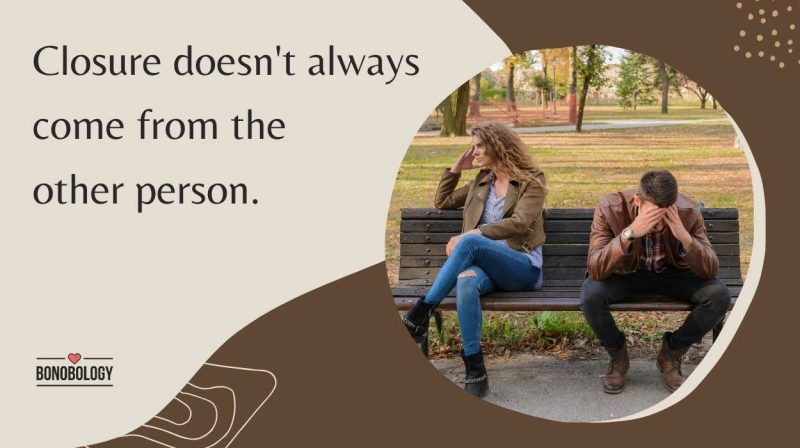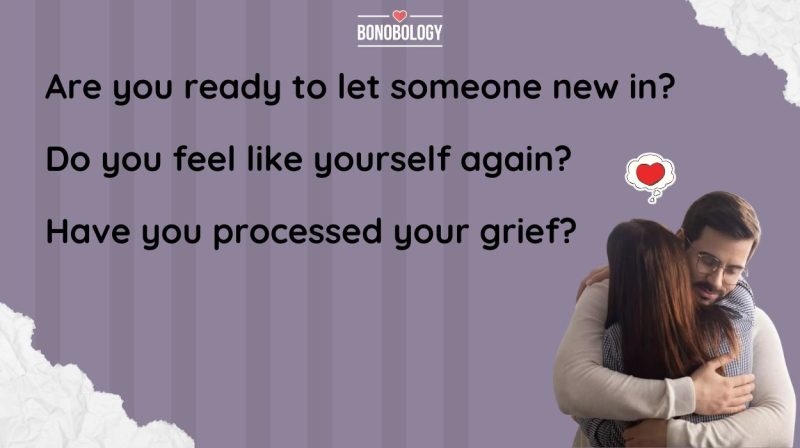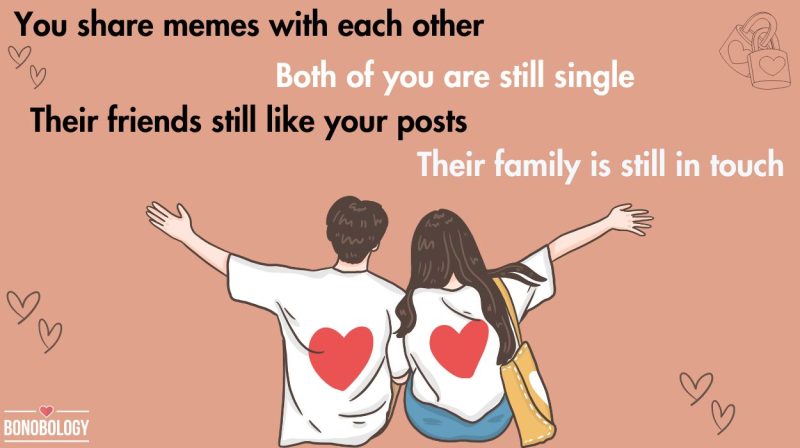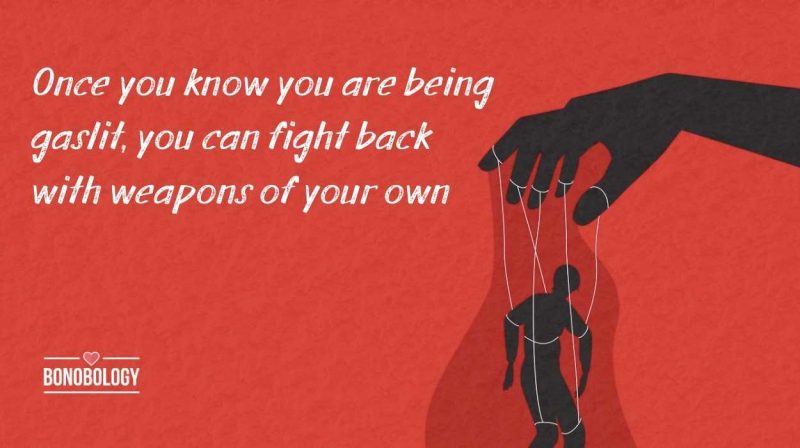I once found myself on the receiving end of a bad breakup. And what made it worse was that I never got closure from my ex. The abrupt end of my relationship left me grappling with unanswered questions. As I replayed the last moments, it became painfully evident that closure, that elusive sense of resolution and understanding, was what I was missing. The void left behind was not only emotional but also intellectual, leaving me with a relentless yearning to make sense of the sudden end of the relationship and figure out how to move on without closure.
Once the relationship ended, the absence of closure became a silent adversary in my healing journey, pushing me to explore unconventional avenues for solace and self-discovery. Is closure necessary? Most definitely, yes, if you want to move on in a healthy manner. But what if you don’t get any closure? Do you need closure to move on, every time you have a bad breakup? And why is it so hard to move on without closure?
In this article, I’ll share 21 ways that can help you finally accept a relationship is over, offering a roadmap for those who find themselves in a similar place of uncertainty and emotional unrest and need to know how to move on from a relationship without closure.
What Is Closure After A Breakup?
Table of Contents
Before getting into how to move on from a relationship without closure, let’s first define closure. Closure after a breakup is the emotional and psychological resolution that helps you move forward and find peace in the aftermath of a breakup. It involves gaining a sense of understanding, acceptance, and finality regarding the reasons behind the breakup and the subsequent emotional fallout. Getting closure typically allows you to release lingering attachments, process the end of the relationship, and begin the healing process.
Wondering how to get closure in a relationship? Closure can manifest in various ways, such as having a final conversation with your former partner to address unanswered questions, gaining insight into the circumstances surrounding the breakup, or simply reaching a point where you can emotionally let go and accept the end of the relationship.
A Reddit user says how closure is when you finally accept a relationship is over: “A lot of psych terms get worn around like a t-shirt, and get stretched as a result. Closure is when the issue (say grief) isn’t active anymore. In the case of a relationship, it’s when you remember what the relationship was actually like (good, bad, and indifferent), and you’re moving forward. You can mainly tell it by where it isn’t. The guy who’s mooning over his breakup doesn’t have closure, but the woman who’s serially dating after a breakup in sort of hopes of “showing him!” isn’t either. If the relationship ends, and you know it’s over, accept it and you’re not launching wacky schemes to get back together or whatever, you’ve got it.”
Related Reading: 5 Steps To Ensure Closure After A Breakup – Are You Following These?
Why is it so hard to move on without closure?
Now that we know how to get closure in a relationship, let’s focus on why moving on without closure is so hard. More importantly, is closure necessary for you to heal after a breakup? Well, a no-closure breakup can be challenging for several reasons, as the lack of resolution in the breakup can leave you grappling with emotional turmoil and uncertainty. Here are some key reasons why it can be difficult to move on without finding closure:
- Unanswered questions: The absence of closure often means that important questions about the reasons for the breakup, your partner’s feelings, or the future were left unanswered, which can lead to persistent doubts and a sense of unfinished business
- Lack of understanding: Closure provides a sense of understanding and clarity, helping you make sense of the end of the relationship, without which, it becomes harder to process and come to terms with the situation
- Emotional attachment: Closure is closely tied to the emotional bonds formed during the relationship. Without a clear ending, you may struggle to detach emotionally and may find yourself still emotionally invested in the past
- Incomplete emotional process: Closure is a crucial part of the emotional processing that follows a breakup. Without closure, the seven stages of grief after the breakup may be prolonged, hindering your ability to reach a state of acceptance and emotional healing
- Fear of rejection: The lack of closure may contribute to feelings of rejection, as you may interpret the absence of a clear ending as a form of dismissal or disregard or an indication that you’re somehow a bad person
- Difficulty in moving forward: Closure often marks the end of one chapter and the beginning of another. Without it, there can be a sense of being stuck in the past, making it challenging to embrace new opportunities for growth and happiness
To find out how to deal with not getting closure, you need to actively engage in self-reflection, seek support from friends or professionals, and implement strategies to promote personal healing and closure, even in the absence of direct communication with your ex-partner.
Related Reading: 13 Ways To Get Over A Broken Heart When You Still Love Him
Can you move on from a no-closure breakup?
Before we get into how to get over someone without closure, let us tell you, yes, it is possible to get over never getting closure. While closure can facilitate the healing process, you can still navigate the path to emotional recovery and growth even when explicit resolution is not available. Yes, it’s possible to move on even when a breakup hits hard.
However, remember that moving on is a gradual process, and everyone’s journey is unique. Be patient with yourself, and allow yourself to get over never getting closure. If needed, professional support can offer additional guidance and assistance in navigating the challenges of a no-closure breakup. Now, in the next section, let’s see how to get over someone without closure.
How To Move On Without Closure And Heal — 21 Ways
Ever since the time I never got closure from my ex, I’ve found that a no-closure breakup is an intricate process, demanding a multifaceted approach to healing. Now that we have some answers to the question “Why is it so hard to move on without closure?”, we can delve into 21 nuanced strategies on how to heal from a breakup without closure and emerge on the other side with newfound strength and self-discovery.
Related Reading: How to Move On When You Are Still In Love With Your Ex?
1. Acknowledge and embrace uncertainty
If you’re wondering how to deal with not getting closure, recognize that closure might not be part of your narrative, and accept this ambiguity as the starting point of your journey toward healing. Moving on without closure requires a brave acknowledgment and acceptance of the inherent uncertainty that accompanies painful experiences like this. Instead of grappling with the elusive whys and what-ifs, recognize this uncertainty as a profound aspect of your personal journey in letting go. Understand that relationships, much like normal life, are complex and may not always neatly conclude with a sense of closure.
2. Delve into the dynamics of your past relationship
Take a deep dive into the complexities of your past relationship. Understand the dynamics, identify pivotal moments, and discern how you’ve evolved through this experience. Try to see this step as unraveling the threads that wove the fabric of your connection, examining each pattern, twist, and turn with a discerning eye. This introspective process requires a genuine commitment to understanding not only the external factors that led to the breakup but also the internal dynamics that shaped the relationship.

3. Find different outlets to express yourself
When you break up without finding closure, the emotional weight of the breakup can linger for days, demanding an outlet for expression. Explore diverse channels for expressing your emotions, such as:
- Creating art
- Writing journals
- Confiding in friends
- Seeking professional therapy
Engaging in various forms of expression becomes a crucial aspect of your healing process. Whether it’s the stroke of a pen on paper, the cathartic release of spoken words, or the artistic expression of your emotions, finding the right outlet allows you to externalize and process your feelings.
Related Reading: How To Get Over Someone You Love Deeply – 9 Steps To Follow
4. Establish clear boundaries with your ex
Safeguard your emotional well-being by setting firm boundaries with your ex-partner. Define limits on communication and avoid situations that may trigger distress like reading that last message. Here are some more tips:
- Begin by defining the level of contact that feels manageable for you
- It might involve limiting communication channels, unfollowing on social media, or creating physical distance from them and their friends and family
- You may need to go no-contact and give them the silent treatment too
Establishing these boundaries communicates to both yourself and your ex-partner that you are prioritizing your emotional health and respecting the need for space.
5. Prioritize self-care rituals
If you’re still wondering how to move on without closure, well, cultivate holistic self-care habits encompassing physical, mental, and emotional well-being, such as:
- Regular exercise
- Nourishing diet
- Adequate rest
In the aftermath of a breakup without closure, prioritizing self-care and emotional well-being becomes a cornerstone of your healing journey. Nurturing your holistic well-being is not merely a luxury but a vital necessity in managing the emotional toll. This involves intentional acts of kindness and care directed toward yourself.
6. Rediscover your interests or explore new hobbies
Immerse yourself in activities that bring you joy or discover new passions. Engaging in a new hobby can be both a distraction and a source of genuine fulfillment. Consider hobbies such as:
- Reading
- Gardening
- Painting
Hobbies like these become a gateway to self-discovery and a reminder of your individuality. They offer a sanctuary where you can lose yourself in the present moment, providing a respite from the emotional turmoil of a breakup and a boost to your self-worth.
Related Reading: Confessions Of Five Women Who Say, “My Husband Cheated But I Feel Guilty”
7. Surround yourself with a support system
Seek solace in the company of supportive family and friends. Their understanding and encouragement can provide comfort and help you gain perspective. Moving on without closure can feel like a solitary journey, but surrounding yourself with a robust support system can serve as a lifeline during times of emotional turbulence. Cultivating connections with friends and loved ones who provide empathy, understanding, and a non-judgmental ear can positively impact your healing process.

8. Learn from the experience
Analyze the relationship for lessons. Identify patterns, values, and personal growth areas that have emerged from this experience. Rather than viewing the past through a lens of regret or bitterness, approach it as a reservoir of wisdom that can guide your present and shape your future relationships.
Reflect on the dynamics of your past relationship, identifying patterns, behaviors, and pivotal moments. What strengths did you exhibit during challenging times? Which aspects of the relationship taught you about your values and boundaries? By mining the experiences of the past, you may be able to unearth insights on how to move on without closure.
Related Reading: How Do I Move On From One-Sided Love? Our Expert Tells You…
9. Reframe your narrative toward empowerment
Rewrite the breakup story in your own way to highlight your resilience and growth. Craft a narrative that empowers you, focusing on the strength you’ve gained through adversity. This involves consciously shifting the lens through which you view your breakup, steering away from a narrative of victimhood and embracing one that empowers and uplifts. Instead of dwelling on the unanswered questions and the sense of loss, focus on your resilience and strength. Craft a narrative that highlights the personal growth you’ve undergone, emphasizing the lessons learned and the newfound understanding of your own capabilities as you grow into your future self.
10. Cultivate mindfulness and meditation practices
Integrate mindfulness techniques and meditation into your routine to stay present and foster inner peace. These practices can be instrumental in calming a turbulent mind and keeping emotional issues at bay.
Mindfulness involves being fully present in the moment, allowing you to disentangle from the webs of past concerns and future uncertainties. Meditation, in its various forms, becomes a structured avenue to channel your focus inward, promoting relaxation and emotional balance that help you learn how to move on without closure.
Related Reading: Am I Meditating or Sleeping? How Meditation Puts Me to Sleep
11. Set realistic expectations for yourself
Understand that healing is a gradual process that takes time. Avoid setting unrealistic timelines and allow yourself the time and space needed for authentic recovery. Grant yourself the grace to experience a range of emotions without judgment. Some days may bring a sense of acceptance and tranquility, while others may be clouded with doubt or sadness.
Realistic expectations encompass an understanding that these fluctuations are natural and don’t diminish the progress you’re making. While we preoccupy ourselves with our outward relationship, we sometimes forget to have a healthy relationship with ourselves. It is important to remember to love yourself.
12. Put your thoughts down in words for catharsis and clarity
Chronicle your thoughts and emotions in a journal. The act of writing can be cathartic, providing clarity and serving as a testament to your personal evolution. Use your journal to recount the nuances of your experiences, your responses to challenges, and the lessons you are learning along the way.
Spending a few hours a week documenting your journey fosters a sense of continuity and progress, offering a lens through which you can observe your personal growth and get your life together. It will also show you that you’re not the same person you were in the relationship but stronger and more resilient, and will help you stop talking negatively about yourself.
13. Celebrate every victory, no matter how small
Most people forget to do this. Acknowledge and celebrate incremental progress in your healing journey. Recognize the significance of each step forward, regardless of its size. Create a ritual of celebration, however simple it may be, as you try to find happiness after the breakup. Here’s how you can do this:
- Treat yourself to a favorite meal
- Spend time in nature
- Engage in an activity that brings you joy
By consciously recognizing and commemorating these small triumphs, you reinforce positive behaviors and cultivate a sense of self-efficacy in learning how to move on without closure.
Related Reading: 11 Expert Ways To Cope With A Sudden Breakup In A Long-Term Relationship
14. Connect with people who have had similar experiences
Step out of your comfort zone and connect with people who have undergone similar breakups. Sharing stories and advice can create a sense of camaraderie and mutual support. Listening to others’ experiences can offer new perspectives, coping mechanisms, and insights that resonate with your own challenges. It becomes a reciprocal exchange of wisdom, where shared stories become a collective source of strength, resilience, and encouragement. You can also take this as an opportunity to make new friends and new memories. Sometimes, having no closure is the closure when your ex moves on like it was nothing.
15. Seek professional guidance
I’d strongly recommend exploring the possibility of seeking professional help, especially if you’re feeling overwhelmed by negative thoughts. Therapists and counselors can offer tailored guidance and insights to facilitate your healing process. Therapeutic support can encompass various modalities, including traditional talk therapy, cognitive-behavioral therapy (CBT), or mindfulness-based approaches. The choice of therapy depends on your personal preferences and the nature of your emotional challenges. If you do not know any therapists, consider seeking support from one of our counselors at Bonobology.
16. Envision a positive future
Visualize a future filled with positivity and fulfillment. Set new goals aligned with your personal growth to create a roadmap for the journey ahead. These goals can span various facets of life, including personal development, career aspirations, relationships, and wellness. By directing your energy toward positive objectives, you not only reinforce a sense of purpose but also cultivate a mindset that is future-oriented, rather than dwelling on the past.
Related Reading: Anxiety After Breakup – Expert Recommends 8 Ways To Cope
17. Embrace a mindset of gratitude
One of the best things you can do is foster gratitude by focusing on the positive aspects of your life. Reflect on the lessons learned from the relationship and the opportunities for growth. Expressing gratitude can take various forms, such as keeping a gratitude journal, where you jot down things you are thankful for each day. Alternatively, simply vocalizing your gratitude in daily affirmations or sharing it with others can reinforce the positive aspects of your life.
18. Practice forgiveness
Embrace the transformative power of forgiveness. Release resentment and negative emotions to free yourself from the emotional weight of the past. It doesn’t necessarily require reconciliation with your former partner but is more about letting go of the negative emotions that may be hindering your personal growth. Recognize that although it’s human nature to feel sad and angry, holding onto resentment only perpetuates your connection to the past, while forgiveness allows you to reclaim your emotional autonomy.

19. Engage in acts of kindness
Channel your energy into acts of kindness, both for yourself and others. Contributing positively to the world around you can infuse a sense of purpose into your healing process if you are feeling empty after the breakup. Here are some ways to do this:
- Volunteer for a cause that resonates with you
- Offer support to a friend in need
- Perform random acts of kindness for strangers
Many people find healing in altruism. By directing your energy outward, you bring joy to those around you and create a ripple effect of positivity that not only benefits others but also nourishes your own sense of purpose.
20. Educate yourself on healing
Read books and articles on the psychological aspects of moving on. Educating yourself can provide insights and perspectives that resonate with your personal journey. Explore literature, articles, or podcasts that delve into the psychological dynamics of breakups, coping strategies, and personal growth. Understanding the common challenges (for instance, it’s normal to feel bad or to feel guilty) and effective techniques employed by others who have navigated similar paths can offer valuable guidance.
21. Celebrate your independence
Sometimes having no closure is the closure. Embrace and celebrate your newfound independence and your new life. Reconnect with your individuality, rediscover your passions, and revel in the freedom to shape your own path. Start by engaging in activities that align with your personal preferences and bring you joy. Whether it’s pursuing a hobby, traveling to new places, or simply spending quality time alone, these moments of self-indulgence allow you to reconnect with the essence of who you are.
Key Pointers
- Closure is the emotional and psychological resolution that helps one move on from a relationship that has ended
- Moving on without finding closure is difficult because it leaves many questions unanswered
- However, it is possible to move on without closure through things such as therapy, mindfulness, self-care, and journaling
Each of these 21 strategies on how to heal from a breakup without closure represents a thread of resilience, growth, and self-discovery. Moving on without closure demands an intentional and multifaceted approach. From acknowledging the negative aspects to celebrating your new-found independence, these strategies serve as a roadmap for healing.
The journey is uniquely yours, marked by small victories, self-compassion, and a commitment to personal growth. As you traverse this challenging path, remember that moving on without closure is not the end of the world — it’s about opening new chapters filled with self-love, empowerment, and the promise of a brighter tomorrow.
FAQs
No, you don’t. While seeking closure is great and definitely helps in making new beginnings with a fresh mind, you can always choose to move on without out. Accept whatever has happened to you and make a conscious decision to not get stuck.
The purpose of closure is to seek answers to those things that are causing pain to us. Once you get the answers as to why something happened, you might be able to take the next logical step to reduce the pain by avoiding the mistakes of the first time. Closure is generally related to events that hold a lot of significance and purpose to us.
Closure is important but not absolutely essential. It depends on how you view yourself. If your sense of self-worth was derived from how your partner treated you, then seeking closure when a relationship ends is but natural. But if you are self-assured, then even if you had a bad breakup without closure, you won’t find it difficult to end a chapter.
You have the right to demand answers or explanations when you are seeking closure after a relationship goes kaput. But if your ex does not bother to respond to your request, then don’t go begging or pleading. It will only lead to further humiliation. Try to seek the closure you want from within.
Your contribution does not constitute a charitable donation. It will allow Bonobology to continue bringing you new and up-to-date information in our pursuit of helping anyone in the world to learn how to do anything.






















